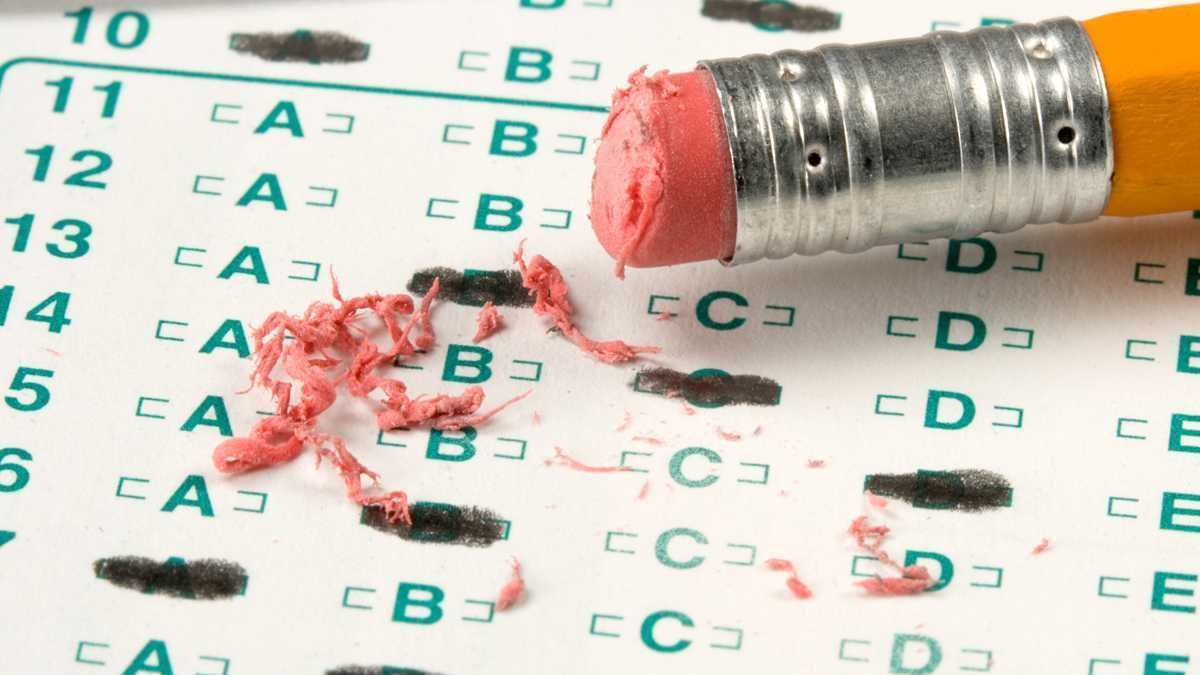University of Delaware drops SAT/ACT requirement for in-state applicants
 via ShutterStock) " title="l_pencil-eraser169" width="1" height="1"/>
via ShutterStock) " title="l_pencil-eraser169" width="1" height="1"/>
Starting with the next year’s crop of applicants, the University of Delaware will not require in-state students to submit SAT or ACT scores.
The move, which was approved Monday by the Faculty Senate, will help UD attract a more diverse applicant pool, officials say.
UD joins a flood of universities—large, small, prestigious, and otherwise—who have gone “test optional” in recent years. As of last fall, there were 850 test optional colleges and universities across the country, according to an analysis by the non-profit group FairTest.
Delaware residents applying to the university for admission in the fall of 2017 can choose whether or not to submit SAT or ACT scores. There will be no penalty for those who elect not to submit scores. UD will study the results for four years, after which the Office of Enrollment Management will “bring before the Senate further recommendations informed by the result of the pilot,” according to the approved resolution.
The intention, officials say, is to diversify the university’s applicant pool. They argue college entrance scores often reflect an applicant’s family income—not his or her ability—and that the reliance on them disproportionately excludes students of color. UD has been prodded recently to increase campus diversity, and in particular to admit more African American students.
By going test optional, UD believes it will attract strong candidates who would have otherwise been dissuaded from applying because of the school’s relatively high average SAT scores. The average UD freshman scored 1821 on his or her SATs last year, a score that ranked in the 83rd percentile of all test-takers.
“Students look at our SAT [scores] and self-select not to apply,” said Doug Zander, UD’s Director of Admissions.
Zander and others argue that those choosing not to apply are more likely low-income students, first-generation college students, and students of color—all groups who traditionally fare worse on standardized college entrance exams. Going test optional will widen the UD applicant pool, Zander believes, and in turn increase campus diversity.
Whether any of that will happen is unknown, and the early outcomes for schools who have already gone test optional are mixed at best. But at the very least there’s considerable evidence to suggest that dropping the test won’t hurt UD’s ability to determine which students are worthy of admission.
Recent studies suggest a student’s SAT’s score isn’t a uniquely good indicator of his or her future college performance. High school GPA, meanwhile, has proved just as reliable in predicting an applicant’s success rate, according to a report put together by the University of Delaware’s Admissions Guideline Committee.
“We studied the literature. We followed the data. The data leads us here,” said Louis Rossi, a math professor at UD who also serves on the committee.
That view, however, isn’t unanimous. The College Board, which administers the SAT, has countered with its own research indicating that high school grades combined with test scores are the best predictor of how students fare when they get to college.
UD chose to run its pilot program with Delaware students only because officials believe in-state students—who tend to be lower income than their out-of-state peers–are more likely to benefit from it.
“We don’t want to waste any more time for Delawareans,” said Zander.
It’s possible the move will increase UD’s average SAT score since those with lower marks will be less likely to submit. That isn’t the intent, said Zander. Rather, the object is to make sure those who do well in Delaware high schools—regardless of income or testing acumen–understand that UD is an option for them.
“This institution was designed with the intention that we educate all people,” said Ralph Ferretti, a professor in the School of Education and a member of the Admissions Guideline Committee. “It’s not just about weeding people out. It’s about enhancing their abilities.”
Those who choose not to submit SAT or ACT scores will still be asked to send in their marks after they are admitted. UD wants the numbers so it can determine whether or not its new policy works.
Luckily for the university, Delaware’s public school system recently decided to use the SAT as its mandatory statewide standardized test for high school juniors. That means all of the state’s 11th graders will be asked to take the test–and thus will have scores to submit before or after admission.
WHYY is your source for fact-based, in-depth journalism and information. As a nonprofit organization, we rely on financial support from readers like you. Please give today.





